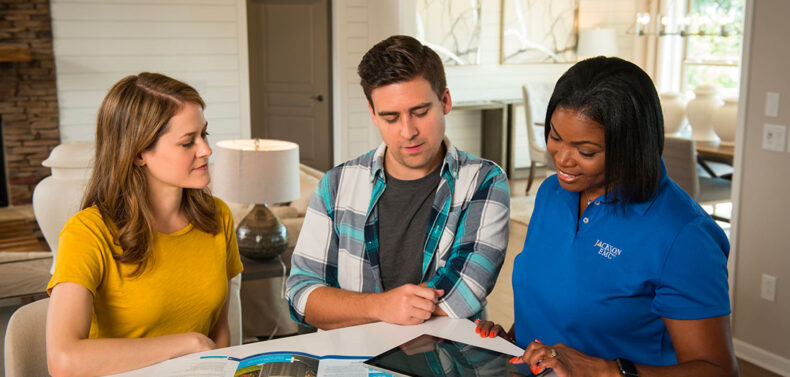Interested in the mission behind Flagpole’s Green Issue, but also looking for a way to save some green? Focus on your home’s energy efficiency to reduce your resource use and keep your wallet filled.
How much you can improve your home will depend on whether you own or rent and how much money and/or credit you can leverage for improvement projects. Homeowners generally are able to complete more effective improvements with less hassle. Renters can ask for broken appliances to be replaced with more efficient alternatives, but have little recourse if those options aren’t chosen. Whether you rent or own, it can be hard to spend money on improvements while juggling the additional energy costs of air conditioning in July and August. You’re paying for that cold air, let’s keep it inside by stopping air leaks.
Both Georgia Power and Georgia electric membership corporations (like Jackson EMC and Walton EMC) have a raft of behavioral tips to keep your home warmer in the winter and cooler in the summer. Georgia Power offers a free tool to help understand home energy usage. Most of these recommendations include setting the temperatures lower in the winter (68 degrees) and higher in the summer (78 degrees), and closing the shades during the hottest part of the day. Grilling outside and not over-drying your clothes (or line drying them on sunny days) are ways to avoid generating too much heat inside your home. Regularly changing filters and cleaning air vents helps your HVAC system work effectively and avoids damaging parts.
At $100–$200, an infrared camera phone attachment could be a good one to split with your neighbors. An infrared camera really helps point out problem areas, but likely won’t be an everyday tool. While it’s possible to go more low-tech by studying a candle’s flame near drafty cracks, I find the infrared camera a good gadget. Using the camera, I can find the exact cranny that needs caulk between the window and the casement. With the camera, I can position the weather strips around the door for a better seal. It’s also satisfying to see the temperatures improve once the space is caulked or the weather stripping set.
Hiring a professional to complete a $250 blower test helped my husband and me prioritize our home energy improvement projects. I wanted to replace our single-pane windows—they’ve got to be leaking air, right? My husband was focused on the attic insulation. A certified technician came into our home and attached a giant fan to one of our outside doors. The fan blows air out of the home, pulling a noticeable breeze from any unsealed spot. He then tested air flow throughout the home by opening or closing off rooms and feeling for steady air flow. The ceiling leaked like a sieve, especially in the two rooms where we learned there was little to no attic insulation. The windows, by comparison, leaked very little. My husband was right! We cleaned out the corresponding attic space and hired an insulation contractor. It’s made a huge difference in how fast the home heats up and how long it retains the heat. I’m excited to see what a difference the new insulation makes this summer in keeping the cooler air inside.
Home energy audits include a blower test, but also include other ways to assess your home’s energy usage. It’s hard to know how much this will end up costing because of various rebate programs through the different energy utility providers. The size, age and condition of a home could also be factors in pricing. The home energy audit will include inspecting insulation, testing the ductwork, assessing cooling and heating systems and the hot water heater. The assessor will complete a report with recommendations. For federal programs, you might need a home energy audit before and after installing upgrades to verify the home improvements you’ve made. You’ll want to schedule this through your EMC (if you’re a customer) or use the list of Georgia Power-approved home energy auditors before requesting rebates.
Like what you just read? Support Flagpole by making a donation today. Every dollar you give helps fund our ongoing mission to provide Athens with quality, independent journalism.










